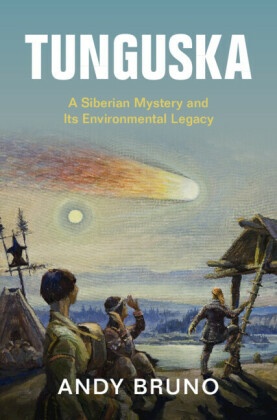Tunguska - A Siberian Mystery and Its Environmental Legacy
| Verlag | Cambridge University Press |
| Auflage | 2022 |
| Seiten | 304 |
| Format | 15,3 x 2,3 x 23,5 cm |
| Gewicht | 599 g |
| Artikeltyp | Englisches Buch |
| Reihe | Studies in Environment and History |
| EAN | 9781108840910 |
| Bestell-Nr | 10884091UA |
Examining the role of mystery in environmental history, this book is an intriguing new account of the enigmatic 1908 Tunguska disaster.
In 1908, thunderous blasts and blazing fires from the sky descended upon the desolate Tunguska territory of Siberia. The explosion knocked down an area of forest larger than London and was powerful enough to obliterate Manhattan. The mysterious nature of the event has prompted a wide array of speculation and investigation, including from those who suspected that aliens from outer space had been involved. In this deeply researched account of the Tunguska explosion and its legacy in Russian society, culture, and the environment, Andy Bruno recounts the intriguing history of the disaster and researchers' attempts to understand it. Taking readers inside the numerous expeditions and investigations that have long occupied scientists, he foregrounds the significance of mystery in environmental history. His engaging and accessible account shows how the explosion has shaped the treatment of the landscape, how uncertainty allowed unusual ideas to enter scientific conversations, and how cosm ic disasters have influenced the past and might affect the future.
Inhaltsverzeichnis:
Note on sources, abbreviations, terminology, and transliteration; 1. Landscape of mystery; 2. Destruction from the sky; 3. Reaching the inaccessible terrain; 4. Poking and prodding for answers; 5. Cosmic fantasies; 6. Volunteers take charge; 7. Life in Tunguska; 8. Protecting the taiga; 9. Views from afar; 10. Siberian and planetary futures; Endnotes; Bibliography; Index.
Rezension:
'In this wonderful and fascinating book, Andy Bruno unravels the mysteries and marvels of the awe-inspiring extraterrestrial event that rocked Siberia's Tunguska region in 1908; an event we have been struggling to grasp for more than a century. Brimming with engaging prose and insightful analysis, Tunguska is at once a scientific detective story, an exploration of the cultural meanings of the cosmos and catastrophe, and a deep dive into the environmental and scientific history of the Soviet Union and beyond.' Nicholas Breyfogle, Ohio State University

